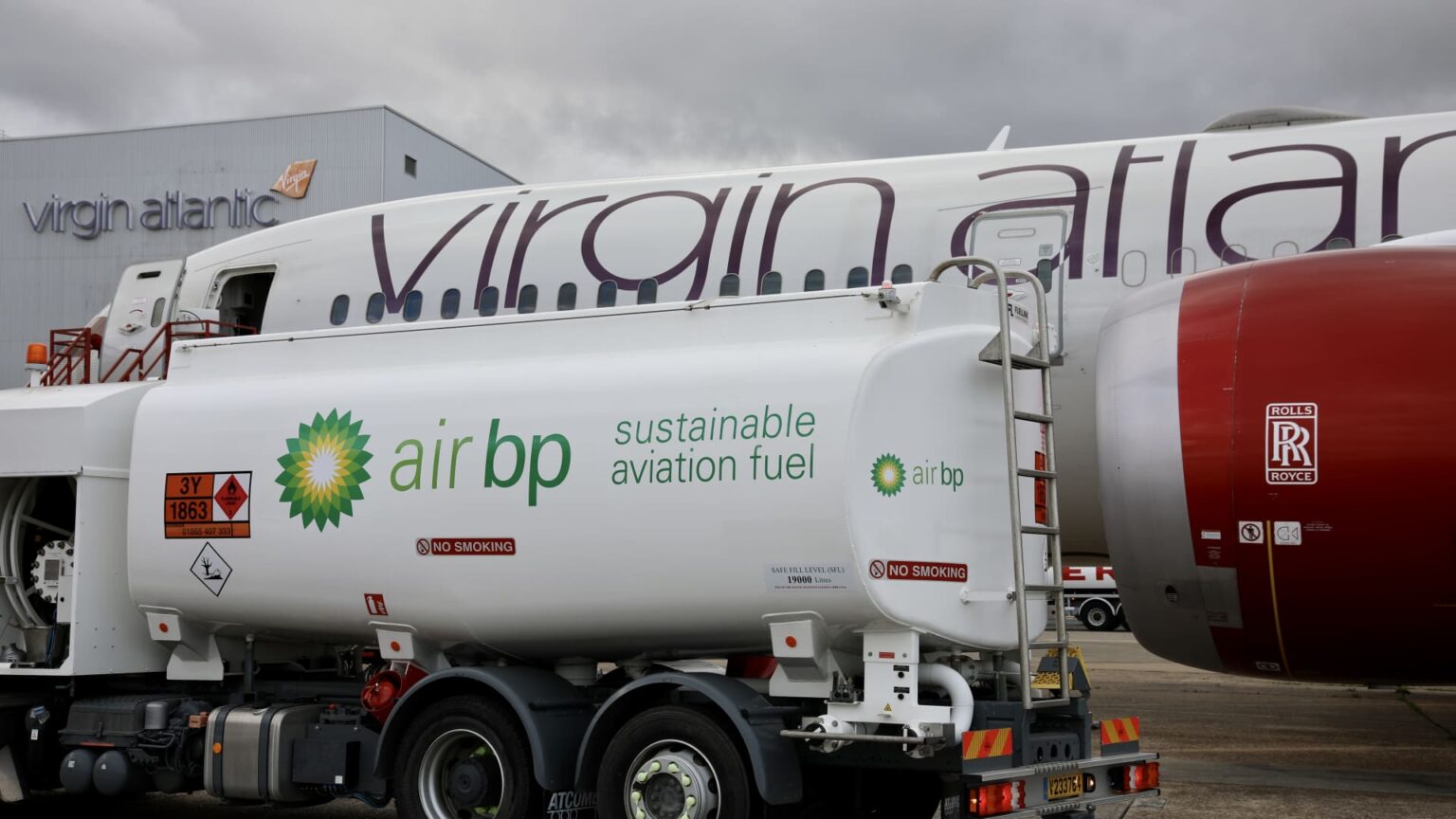LONDON — The first transatlantic flight using 100% sustainable aviation fuel departed London for New York on Tuesday as the industry seeks to prove the viability of greener air travel.
Virgin Atlantic’s Boeing 787 is burning a blend of 88% waste fats supplied by AirBP, and 12% Synthetic Aromatic Kerosene made from plant sugars.
Test flight VIR100, which is not carrying paying passengers, departed London Heathrow for New York JFK at 11:49 a.m. U.K. time (6:49 a.m. ET), according to Flightradar24 data. It is due to land shortly before 2 p.m. ET.
Sustainable aviation fuel — also known as SAF — is an umbrella term for non-fossil-derived fuels, including biofuels derived from plant or animal materials, municipal waste and agricultural residues.
It still produces emissions, but proponents argue the overall “lifecycle emissions” from the fuel are significantly lower than from regular petroleum-based fuel.
Other airlines have used SAF on commercial flights, although generally on shorter journeys and in up-to-50% blends with regular fuel, which was previously the regulatory limit. Tuesday’s Virgin Atlantic flight was approved by the U.K.’s Civil Aviation Authority earlier this month.
A group of 60 companies across the airline, transport and cargo industries pledged in 2021 to reach 10% SAF use for global jet aviation fuel supply by 2030.
An advantage of SAF is that it can be run in existing aircraft engines with no adaptions. A number of airlines have pledged to make investments into increasing use of the fuel as they seek to cut overall flying emissions, including through the use of more fuel-efficient aircraft.
However, numerous challenges remain to its widespread adoption, not least supply shortages, higher costs, and concern over the sustainability of its generation.
There are relatively few SAF production plants or companies transporting it globally, with incentives for producers hampered by low margins.
The U.K.’s Royal Society cautioned in a report earlier this year that only some biofuels could be described as net low-carbon, and that the availability of feedstock was a challenge to scale.
Some groups argue that higher production of biofuels risks worsening deforestation and food scarcity, and say reducing the number of flights taken is the only way to cut aviation’s environmental impact, which contributes to around 2% of manmade CO2 emissions.
Virgin Atlantic CEO Shai Weiss said the flight would show SAF “can be used as a safe, drop-in replacement for fossil-derived jet fuel and it’s the only viable solution for decarbonising long haul aviation.”
“There’s simply not enough SAF and it’s clear that in order to reach production at scale, we need to see significantly more investment. This will only happen when regulatory certainty and price support mechanisms, backed by Government, are in place,” he added.
Read the full article here

